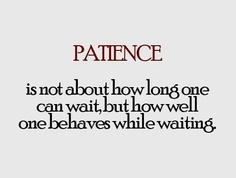|
I caught a quick interview by Jill Shalvis online and I was struck by something she said: she basically said that (yes, I'm paraphrasing here) she thought about what would be rock bottom for her and then let her hit it, knowing the character would have to climb her way back. That journey right there is what will show us (not tell) who the character is at the core. That got me thinking: do I know who my characters are at the core? What makes them hurt? Laugh? Cry? Rage? I have plot points, relationships, settings but do I know who these people really are? You need to know if your characters are going to be real. Given that you are inside their heads and making their decisions and that those decisions tell us who the audience is connecting with, you want to make sure you know the people you create very well. What makes them tick? How would they respond to a specific situation? I had to seriously contemplate such questions after I saw the interview with Jill Shalvis. I found myself thinking, "What's rock bottom for this character?" It truly forced me to look at the person I was trying to create out of words. Then today, I was reading Caitlin Rantala's twitter feed (if you don't follow her, you're missing out cause she's awesome) and she said she almost emailed one of her characters. I thought, "That". Your characters need to be so real that when you're remembering a conversation that's been had, it takes you a minute to realize the conversation was fictional between fictional charcters. But it, they, were so real that you momentarily forgot. So I developed a list of questions for my characters and took a break from my work in progress until I could answer all the questions. I'll share what questions I used in hopes that maybe you'll tell me how you make your characters real. The WIP that I developed these for is quite dark but it was a good starting point. I don't know if I would apply the exact same questions for every WIP but if you can't answer them, maybe your characters need to be fleshed out a bit more. Ten Questions to ask your Main Characters 1. What’s their biggest fear? 2. What is their biggest attribute? 3. How would they describe the lowest moment of their life? 4. Who makes them happy? 5. What are they proud of? 6. What do they see as their biggest flaw? 7. What do the supporting characters see as their biggest flaw? 8. Give three physical adjectives to describe them? 9. What are three emotional adjectives to describe them? 10. What do they secretly wish for? Now maybe your book isn't about their secret wishes but that's not the point. The point is to know your character like you know yourself. Knowing your characters is what is going to allow your audience to know them and if they know them, they'll care for them, and if they care for them, they'll fall into the book and the world that you created. Which is definitely the point.
What do you use for character development? Every aspiring novelist's dream: You float lightly on your long legs (it's my dream so I can if I want) to your computer where you see the email that has been sitting, waiting for you. Dear.... please send your full manuscript to....I really want to read the rest of it. Please let us know if you receive any offers ASAP. You try to contain your excitement as you reply, with an attachment (and that right there is a compliment because they won't think you're trying to infect their computer when they see an attachment). Then, you wait patiently, because in dreams, you're patient and really good looking. Then comes the email that says...wait for it.... Dear.... And a variety of questions and comments cross your mind and may spurt out of your mouth:
1. Why not? 2. But you asked for it!!! 3. Did you read it wrong? 4. Did I write it wrong? And then you just sit, crossing your beautiful and enviable long legs while you ponder what it was that made them go from wanting your manuscript to not wanting it. What drew them in and turned them off? There are a number of great blogs by agents that will answer those questions for you but the bottom line is, you're still going to be left wondering. Anything that is based on a subjective opinion is going to leave you wondering unless they said, "I did not like X or Y." So then you're left with trying to decide what to do with this manuscript that is garnering attention but not closing the deal. Do you rehaul it blindly? Maybe. Do you send it out to new CPs and ask for feedback? Possibly. Do you shelf it entirely and get to work on your next WIP? You could. None of those routes are going to give you the answers you want though and that's where it gets frustrating. To be fair to agents, they can't give feedback on every submission, especially the ones that didn't grab them by the throat and take their breath away. When I'm marking papers or assignments, I sometimes give generous feedback that explains what I loved and sometimes I say, "B". Why? My mood, the length of the assignment, the grade speaks for itself, the pile of papers I've got in front of me, or something about the assignment itself. I have criteria that I need the students to meet, but sometimes it's just a subjective gut instinct. The times that I've second guessed myself and asked, 'Am I being to hard on them?', I'll go back with my criteria sheet, review it and 9 times out of 10, come up with the same result. Agenting, I'm guessing, must be similar. They've been doing it long enough that when they know, they know. Sometimes they don't have a specific reason. Sometimes they just know it was a B and they were looking for an A. As writers, I think we get caught up in subjectivity as well and this can be dangerous. We need to be objective about our work and, when we can't, show it to others that can and will. Even if they say things you don't want to hear. Wouldn't you rather hear about it from someone who cares about you, who knows what your writing means to you, who wants what's best for you? This week, I had someone I trust tell me that I needed to decide if I was in this because I completely believed in my work and was willing to keep pushing and trying or if I just wanted to have a book published. They're two different things. If you believe in your work, if you've edited, revised, asked for feedback, utilized that feedback to the best of your ability, worked on your query letter, researched agents, and are willing to keep going despite rejection, then this is about more than just saying you published a book. So keep going, accept the fact that you won't always know why, but, as I was also told this week, it only takes one to say yes, regardless of how many say no. This has been an interesting week for querying my contemporary romance manuscript. I've received 1 "No thanks, not for me, best of luck" rejection and 1 "The writing was clichéd and I did not connect to your main character" rejection (OUCH...that one hurt). However, in the good news column, after entering the pitch contest on Brenda Drake's website, I received three requests: one followed up by requesting the full manuscript the day after I submitted two chapters. It is quite the paradox to have two people tell you they don't want your writing while trying to convince yourself that one of three will. So I'm distracting myself in the best ways I can and thought I'd share some ways to wait because, let's face it, waiting patiently and forgetting that my manuscript is in the hands of three people that showed interest, is not going to happen. Ten Ways to Wait
What did I miss? What do you do to keep from going crazy? There's a great line in The Search (by Nora Roberts) that I love: "[We] worked on keeping each other from going crazy." Find someone or something to help you channel the crazy that inevitably comes along with waiting. Now, taking my own advice, I'm going to go read Jill Mansel's Staying at Daisy's. |
Archives
May 2021
Categories
All
|




 RSS Feed
RSS Feed
